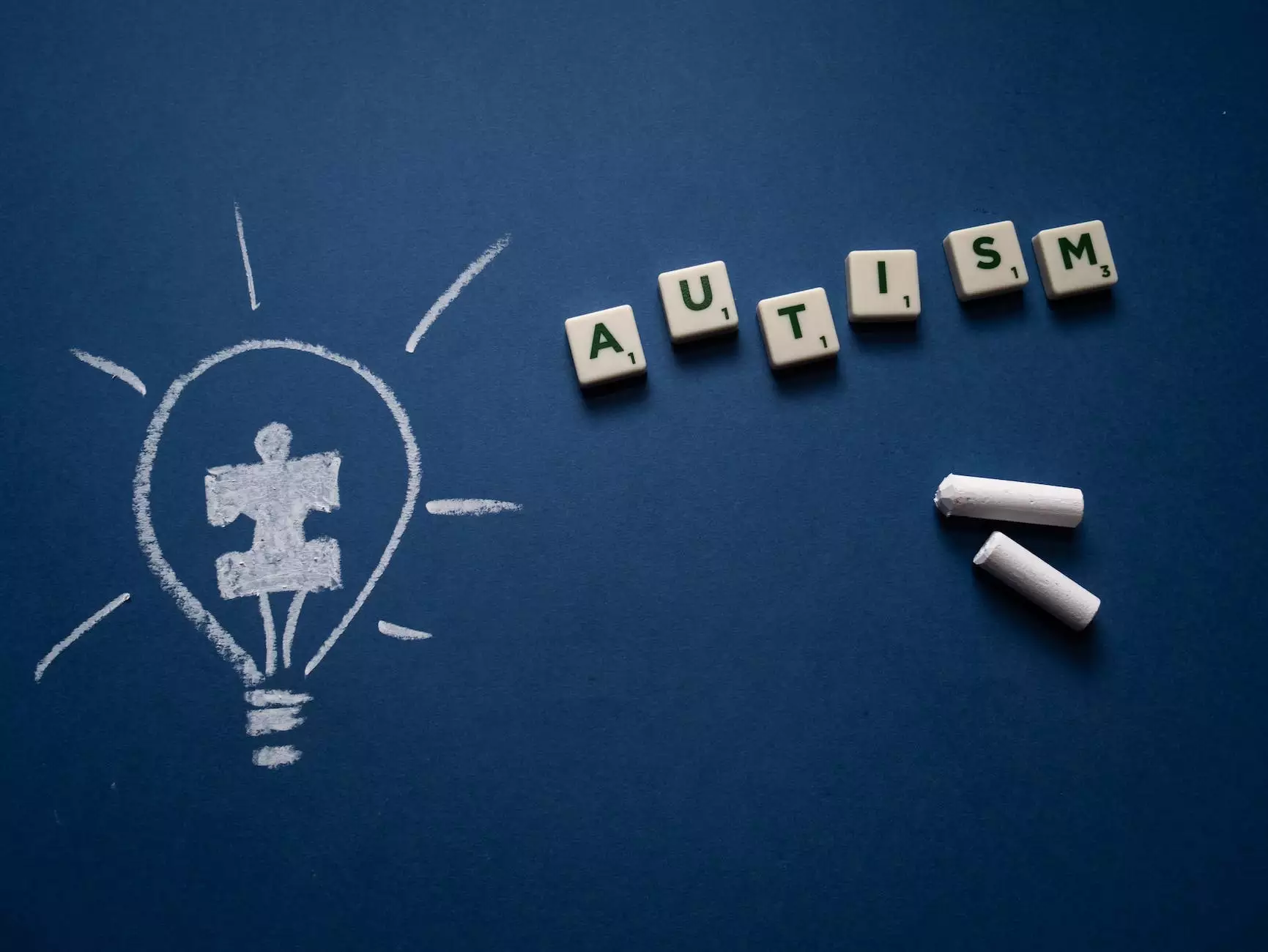Pica In Children with Autism

Welcome to Festivals Bazar - your comprehensive resource for understanding pica in children with autism. In this article, we will delve into the causes, symptoms, and treatment options for this complex condition. Our aim is to provide you with the knowledge and insights you need to better support your child's well-being.
Understanding Pica
Pica is a disorder characterized by the persistent eating of non-food substances. While it can occur in individuals of all ages, it is particularly prevalent among children with autism. The exact causes of pica in children with autism are still uncertain, but certain factors are believed to contribute to its development.
Potential Causes
Research suggests that sensory issues and oral stimulation seeking behavior may play a significant role in pica. Due to sensory processing difficulties, children with autism may crave different sensations, leading them to explore and consume non-edible objects.
Additionally, it is important to consider that pica may be a means for children with autism to communicate their needs or relieve anxiety. It is crucial to closely monitor and address any underlying emotional or behavioral issues that may be driving this behavior.
The Impact of Pica in Children with Autism
Pica in children with autism can have various implications for their overall health and well-being. Ingesting non-food substances can lead to nutritional deficiencies, digestive problems, dental issues, and even serious health complications. Moreover, the consumption of harmful substances can pose a risk of choking or intoxication.
Identifying Symptoms
Recognizing the symptoms of pica in children with autism is essential for early intervention and treatment. Some common signs include:
- Craving and consuming non-food items: This can range from substances such as dirt, clay, chalk, or paper.
- Intense fascination with non-edible objects: Children may display a preoccupation with specific textures, colors, or shapes of certain items.
- Gastrointestinal issues: Digestive problems may arise due to ingesting non-food substances, leading to discomfort and potential health complications.
- Persistent behavior: The consumption of non-food substances becomes a repetitive and difficult-to-control behavior.
Treatment Options
Managing and addressing pica in children with autism requires a comprehensive approach. It is crucial to work closely with healthcare professionals, therapists, and educators to develop an individualized treatment plan. Here are some commonly employed strategies:
Behavioral Interventions
Behavioral interventions focus on identifying triggers and implementing positive reinforcement strategies to encourage appropriate eating behaviors. This may involve providing alternative sensory experiences, redirecting the child's focus, or reinforcing the consumption of appropriate foods.
Sensory Integration Therapy
Sensory integration therapy aims to help children with autism regulate their sensory processing and respond appropriately to different sensory stimuli. By addressing underlying sensory issues, this therapy can contribute to reducing the cravings for non-edible items.
Functional Communication Training
Functional communication training teaches children alternative ways to express their needs, emotions, and desires, reducing the reliance on pica as a means of communication. Communication techniques such as sign language, picture-based communication systems, or assistive technology can support effective communication and engagement.
Environmental Modifications
Making modifications to the child's environment is crucial in preventing access to non-edible items and ensuring a safe and stimulating space. This may involve securing cabinets and drawers, using appropriate storage solutions, and offering a variety of sensory-rich activities and toys as alternatives.
Conclusion
Understanding and addressing pica in children with autism is vital to promoting their overall well-being. By recognizing the potential causes and implementing appropriate interventions, we can support these children in developing healthier eating behaviors and ultimately enhance their quality of life.
At Festivals Bazar, we are committed to providing you with the information and resources you need to make the best decisions for your child. Our platform offers a wide range of products and solutions designed to meet the unique needs of children with autism.
Explore our extensive selection and discover expert insights on pica in children with autism. Together, we can create a supportive and nurturing environment for your child's growth and development.










